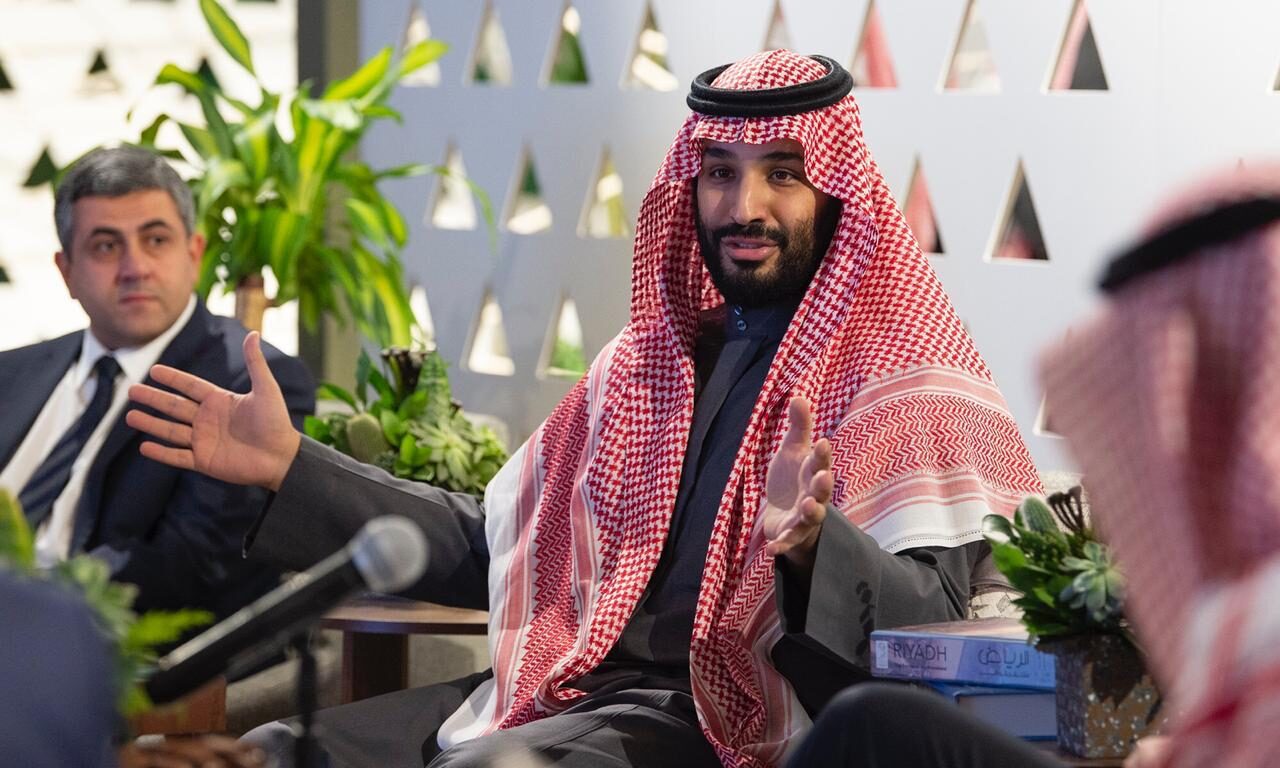China Catching the Wave of Intensifying Saudi-UAE Rivalry

As the United Arab Emirates and the Kingdom of Saudi Arabia compete over regional dominance and pursue their ambition of economic diversification, courting China is likely to assume center stage in their foreign policy.
This article is part of a series of articles authored by young, aspiring China scholars under the Future CHOICE initiative.
The Arab Spring Uprisings of 2011 to a large extent acted as the impetus behind the unprecedented levels of cooperation between the two dominant players of the Middle East. Nevertheless, the changing geopolitical landscape in the region and the UAE and Saudi Arabia’s growing ambitions to bolster their position both on the regional and the international stage, have resulted in a new and increasingly complex dynamic between the two oil-rich economies.
Over the past couple of years, Saudi Crown Prince Mohammed bin Salman (MBS) and the UAE President Sheikh Mohammed bin Zayed Al Nahyan have repeatedly struggled to overcome their differences in perspectives on regional policies, most notably the war in Yemen and OPEC oil production limits. In an interview conducted in 2022, MBS went as far as to threaten to impose sanctions on UAE and bring the country under a blockade, saying it would be “worse than what I did with Qatar.”
As China’s engagement in the region grows, it will likely be able to take advantage of the evolving competition between Saudi Arabia and the UAE, especially as they continue to search for new investments to fund their diversification plans and ambitious mega projects.
Current Flashpoints: Yemen and Beyond
The Saudi-Emirati disagreements span across both political and economic spheres. Concerning the two countries’ regional policies, their diverging interests in Yemen have not only acted as a major fissure in their relationship, but have also become an obstacle to the ending of the ongoing conflict. While Saudi Arabia perceives the Iranian-backed Houthi movement as a significant threat to its national security, the UAE views the intervention in Yemen as an opportunity to build ports in the Gulf of Aden and develop Southern Yemen as its potential economic partner. In 2019, the UAE partially withdrew its forces from Yemen to focus on domestic security concerns rather than fighting the Houthi insurgency. This led to frustration on the Saudi side, which perceived the decision as directly threatening its national security.
Another flashpoint is their diverging views concerning OPEC, namely production levels and price regulation. Saudi Arabia’s growing pressure to raise the price of oil has become a particularly sore point for the UAE and led to further disagreements within the organization itself, with the UAE allegedly telling the United States that they were ready to leave the organization altogether. The UAE has, historically, viewed Saudi Arabia as wanting to assume the leading role in OPEC, which was, by extension, seen as the kingdom asserting its dominance also regarding other aspects of the Saudi-Emirati competition.
Additionally, the two Gulf countries have entered a new era of enhanced economic competition as they both look to diversify their economies. Not only has MBS put forward his plans to push companies operating in the kingdom to relocate their headquarters from Dubai to Riyadh, Saudi Arabia is also looking for ways to attract a greater number of tourists, establish technological centers, and become the new transportation hub of the Middle East. The Saudi government has set a goal of 480 multinational companies being headquartered in the kingdom by 2030, and MBS has stated that the kingdom plans to spend $147 billion to facilitate the development of transportation infrastructure, directly challenging the UAE’s prominent position as the region’s hub for expats, trade, and business.
Growing Synergy Between China and the Gulf Countries’ Strategies
Given their geostrategic location, both Saudi Arabia and the UAE view the development of maritime infrastructure and transportation as vital to their economic diversification plans. While the UAE already ranks among the world’s five largest maritime shipping hubs, Saudi Arabia’s ambitions present a direct challenge to the UAE’s dominant position.
This competition suits China’s own desire to expand its Maritime Silk Road and gain access to strategic regional waters and ports. Even though the UAE has a significant head start compared to Saudi Arabia, as it is currently the primary gateway for China’s exports to Europe, the Middle East, and Africa, Saudi Arabia enjoys the advantage of being the sole country with direct access to both the Persian Gulf and the Red Sea. That makes it an attractive partner for China’s future endeavors.
The synergy between China’s ambitions and the Emirati and Saudi needs has over the years led to the inception of a wide range of Sino-Saudi and Sino-UAE projects within the maritime sector.
For instance, in 2016, Abu Dhabi Ports signed a concession agreement with China Ocean Shipping Company, giving it the rights to operate and develop the Khalifa Port for a period of 35 years, with the purpose of bolstering trade revenue generated by China’s BRI. China’s activities around the port have recently sparked new concerns particularly among US officials as many believe that the Khalifa port might partly serve as a military base for China’s People’s Liberation Army. Currently, around 40 percent of all Chinese exports make their way through Emirati ports, which also serve as a gateway for Iranian oil in the face of the re-imposition of international sanctions on the Iranian regime.
Saudi Arabia has not lagged behind. As part of the country’s plans to become a global trade and logistics hub, Riyadh signed a series of agreements with China focused on the development of maritime infrastructure. For example, in 2017, China Harbour Engineering Company won a contract for the construction of a commercial port in the Jazan Economic City. In 2021, China Ocean Shipping Company bought a 20 percent stake in Saudi Red Sea Gateway Terminal. And in 2022, the Gulf-China weekly route between King Abdulaziz Port in Dammam and China’s Ningbo saw its inaugural service.
The Future Course of UAE-Saudi Relations
Even though China is already a major investor in the Persian Gulf, given the current dynamics, more opportunities are likely to arise for Sino-Saudi and Sino-Emirati cooperation in the future. With the Saudi-Emirati competition over Arab leadership and global prominence likely to continue well into the second half of this decade and beyond, China will have the chance to leverage their growing desire to attract investment, diversify their economies, and gain access to new technologies.
However, tensions between the Saudi kingdom and the UAE are likely to worsen even further as both countries’ strategies become more pragmatic, assertive, and focused on national interests. Both MBS and the UAE President Zayed Al Nahyan want to show the economic and political might of their countries, as well as demonstrate their willingness and ability to act as active agents in determining the future of the Middle East. As a result, the two countries’ growing ambitions will likely have an impact beyond their bilateral relations, undermining efforts to unify countries in countering Iran, end the war in Yemen, and improve Israel’s relations with Islamic countries.
If Beijing wants to use the current situation to promote its own interests, it will have to carefully navigate the increasingly competitive nature of the Saudi-Emirati relationship. While the temptations might be high, diving in headfirst might drag Beijing into a zero-sum game, a situation that China will likely want to avoid to protect its political and economic objectives in the region.
Written by
Dominika Urhová
DUrhovaDominika Urhová is a China Analyst at AMO, specializing in China's foreign policy, Cross-Strait relations and China's influence in the Middle East and the Western Balkans. In the past, she contributed to the Middle East Policy Journal and to the research outputs of the Observer Research Foundation. Dominika holds a Master's degree in Security Studies and Diplomacy from Tel Aviv University and a Bachelor's degree in Development Studies with a concentration in Economic Development from Lund University in Sweden.


